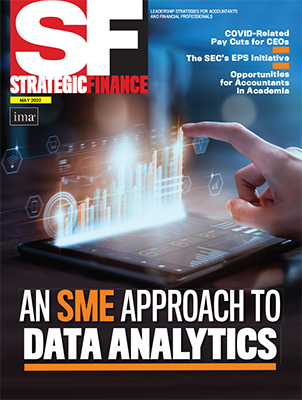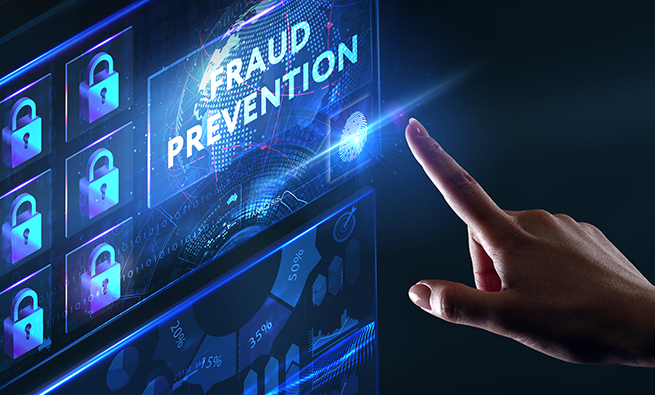The U.S. Department of Education opened investigations into two Ivy League universities, Harvard and Yale, in 2020 for allegedly neglecting to report hundreds of millions of dollars in foreign donations, some of which were reportedly from companies and governments considered to be hostile to the United States. Last year, the Department of Education sent letters to numerous other academic institutions asking them to provide disclosures related to foreign donations. Uncovering this kind of information is important to ensure that colleges and universities are operating ethically. Forensic accounting techniques can play a role in detecting and documenting fraud and other types of unethical conduct. Expertise in this area can open up viable career paths and provide fraud prevention tools for ethical management accounting and finance professionals.
Jennifer Stevens, assistant professor at Ohio University’s School of Accountancy and former fraud prevention and forensic accounting specialist at EY, has conducted research on financial reporting and auditing. She says that forensic accounting can reveal details about the mystery donations that Harvard, Yale, and other higher education institutions allegedly failed to report.
Examining the ethical issues related to the case, judgment hinges on whether the universities’ misreporting was intentional or a mistake, which forensic accountants can help to investigate. While it was clearly a breakdown in those institutions’ internal controls, intentional misreporting says a lot more about the organizations’ lackluster culture of ethics and would be much more damning than an oversight.
“As an investigator, one is always suspect of scenarios in which an incentive to commit fraud is present,” Stevens says. “In this case, the universities may want to accept the money but fear governmental or public backlash.”
The next concern is the levels of personnel at the organization involved. The higher up the ranks that the knowledge of—or involvement in—the fraud extends, the more it threatens the organization’s ethical credibility and reputation.
“A forensic accountant would first secure all evidence: documentation surrounding the reports and underlying source data, as well as individuals’ computers and email,” Stevens says. “The two main goals would then be to quantify the misreporting and establish responsibility for or knowledge of it.”
From an ethical perspective, how should universities’ internal accounting and finance personnel have handled the situation if they had knowledge of it? “If you see something, say something” applies in this case.
“The employees probably should have first reported the situation to the compliance department or the department responsible for government reporting if they realized the potential misreporting, following up with the general counsel if necessary,” Stevens says. “Reporting to internal audit would be another possibility, or the employees could have reported anonymously through any whistleblower reporting mechanisms in place at the organization.”
FORENSIC ACCOUNTANT QUALIFICATIONS
Forensic accounting requires strong technical, accounting, and investigative skills. Also, forensic accountants need a basic understanding of the law and legal and regulatory frameworks under which they will operate, as they may need to provide guidance to senior management and even testify in court, according to Stevens. An undergraduate degree in accounting is usually required, and a master’s degree in accounting is often preferred. In addition to broader accounting certifications like the CMA® (Certified Management Accountant), CSCA® (Certified in Strategy and Competitive Analysis), and CPA (Certified Public Accountant) certifications, the CFE (Certified Fraud Examiner), CIA (Certified Internal Auditor), and CFAE (Certified Forensic Accounting Expert) are well-respected credentials that have elements specifically related to fraud prevention, internal auditing, and forensic accounting, respectively.
Forensic accountants are employed by accounting and consulting firms, work within companies as internal auditors or special investigators, and serve in various law enforcement departments and governmental agencies such as the Federal Bureau of Investigation, the U.S. Secret Service, the U.S. Securities & Exchange Commission, and the Bureau of Alcohol, Tobacco, Firearms, and Explosives. In addition, some work for international organizations such as the World Bank and International Monetary Fund and, to a lesser extent, not-for-profit organizations.
“In my experience, nonprofits usually have fewer resources dedicated to fraud prevention than private companies or governmental organizations do,” Stevens says. “Nonprofits seem to devote less funds to support the organization and often have fewer employees responsible for large sums of money, as most try to maximize funds going directly to the core mission.”
FRAUD PREVENTION TIPS
The tone at the top is extremely important in establishing an ethical culture, which encompasses a broad array of employee and organizational behavior. Sometimes that’s easier said than done, and finance leaders can’t simply take it for granted, go through the motions, or preach about the importance of ethical conduct; rather, communicating about ethics regularly and backing up such talk with consistent actions are typically effective ways to lead by example.
“An anti-fraud culture is a necessary but not sufficient first step in establishing an ethical culture,” Stevens says. “A culture that pushes boundaries, looks the other way, or tolerates fraud at any level can’t expect anything more from its employees or the organization as a whole.”
All organizations should have an anonymous whistleblower reporting mechanism such as a hotline, as tips are the number-one source of fraud detection, as reported by the Association of Certified Fraud Examiners’ 2020 Report to the Nations. In addition, organizations should focus on establishing and strengthening a solid system of internal controls, as weaknesses in that area are responsible for enabling or failing to detect many frauds, according to Stevens.
“Organizations should establish a strong anti-fraud culture that combines a consistent tone at the top, training for employees, internal controls, and frequent fraud monitoring and reporting to prevent, detect, and deter fraud,” she says.

May 2022



